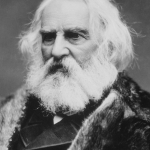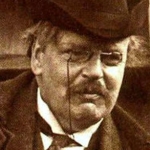Torquemada. Now that Castile and Aragon in holy wedlock
are Spain,
and the last city of the Moors in Spain is Spanish
except for Moor and Jew—
about every crucifix in every market-place
and in the court itself the Jews!—
as seven centuries of Christian valor, Christian piety
triumph
stay not your hand;
Spain of the knights,
one in fealty to your majesties,
become one in faith,
Spain of the saints!
Like the sun,
rising as our Savior from His tomb into the brilliant sky
blaze
until the clouds that still obscure the light
are drawn into His brightness
and earth is brilliant as the sky is bright.
Spain newly united
still divided—
as the season of cold is the season of darkness
in the spring of our rejoicing that the Moor is gone from Spain,
the Jew go too!
But if the Spaniard speaks,
I speak no less a Christian:
throw away the curse, you Jews,
of fifteen hundred years;
stay and prosper
and Church and heaven prosper,
in our nets a goodly catch.
Think not that we want aught of you
but your souls;
your money and your jewels—
all your trash—
keep if you stay and are Christian,
take if you are Jews and go;
we ask of you nothing but your Judaism
which has brought you so much misery
and will bring each of you—
the youngest and the gentlest—
to the flames of Hell
and the worm that dies not.
We give you,
miserable sinners,
the waters of
Paradise;
we give you the blessings of the saints,
the blessings of Mary, the blessed mother of Christ,
and the blessings of our Lord Jesus.
Isabella. There is a sweet reasonableness in the words of our
prior;
it is Saint Dominic who speaks to us
through his Dominican or Saint James himself.
Abrabanel. No noble in your court, your majesties,
proud of his forefather, conquering Goth or Visigoth or Vandal,
is of an older Spanish line than we—
Jews in Iberia before the Romans came.
No noble boasting his service
boasts of more than that Jew who through a thousand shoals
and reefs
piloted Aragon to Castile—your marriage and Spain’s glory.
The rest of us, many tens of thousands,
serve you humbly
in smithy, field or vineyard, soldiers or physicians,
as we have served in Spain two thousand years,
Spaniards, true to your majesties
as we are to the god of Israel—and of Spain,
unlike the others only in our faith
for which, if we must answer,
we shall answer to our God.
Torquemada. Since all we do,
and each word spoken, if only in our hearts,
must be in worship—
not a leaf falls slowly but in His service—
to be unlike us in our faith
is to be unlike in everything.
True, you Jews must answer to your God,
and in the flames and burning ice of Hell forever
you shall answer;
but we too, priests, bishops, queen and king,
must answer for you:
farmer or captain answers;
shall we be less answerable for souls?
Abrabanel. You do not honor your God
by bringing Him captives,
like a mere emperor
who must have retainers and retinue,
serfs and forced labor;
the loadstone
without visible motion
draws to itself every particle of iron;
the sword—even though a winged angel swings it—
served only
to drive Adam from his paradise.
Your fingers stiff with rings and jewels,
you dishonor your faith, your majesties, by cruelty,
give it whatever noble name you will
as princes make a rogue knight or lord.
Will thieves and pirates be gentler with us
than your constables and soldiers?—
your majesties will hear of many
ripped up for the jewels it will be said they swallowed;
many left by sailors to die on reefs and sandbars
for a smock or a pair of hose; many dead of plague
or found like birds in winter
dead in the fields about towns or like fish upon a beach;
many will die as slaves at work
beasts would be fitter for but costlier,
who have written a page of Castilian
or handled a Toledo blade with the best.
And yet the weak has each his strength,
Spain of Spaniard, Basque, and Catalonian, Moor and Gypsy,
else all beasts were tigers,
all fish sharks,
and only giants left;
the stricken remember—
as wounds and scars last longer than the blow—
and if drops of water wear channels in the rock
on which the earth itself is,
in the action of centuries
how powerful are tears.
Would you have our religion
like our clothes—for comfort and the eyes of men,
put off at night,
and we left lying naked in the darkness?
The body is like roots stretching down into the earth—
forcing still a way over stones and under rock, through sand,
sucking nourishment in darkness,
bearing the tread of man and beast,
and of the earth forever;
but the spirit—
twigs and leaves
spreading
through sunshine
or the luminous darkness
of twilight, evening, night, and dawn,
moving
in every wind of heaven
and turning
to whatever corner of the sky is brightest,
compelled by nothing stronger than the light;
the body is like earth,
the spirit like water
without which earth is sand
and which must be free or stagnant;
or if the body is as water,
the spirit is like air
that must have doors and windows
or else is stuffy and unbreathable—
or like the fire
of which sun and stars have been compounded,
which Joshua could command but for an hour.
Isabella. If our eye offends us,
pluck it out!
Even so, we will sweep away the Jews
from every town and hamlet, field and corner of our dominion,
though they are the sands for number.
Go and begone—but stay as Christians;
come and be dear to us,
as the Prodigal!
Abrabanel. We Jews have been accused of love of wealth,
but not for all our wealth in Spain,
fields and vineyards, houses of timber and houses of stone
that we must leave,
and all the wealth that will be stolen from us,
will we stay;
we Jews have been accused of arrogance,
but not for all the dignities that we must leave,
our offices and honors
in this, the proudest court of Christendom,
will we stay;
we Jews have been accused of love of life,
delighting in the flesh,
but though we shall die along a thousand roads
we will not stay—
striking roots
somewhere
to flourish
as we flourished,
giving shade and fruit.




















Comment form: